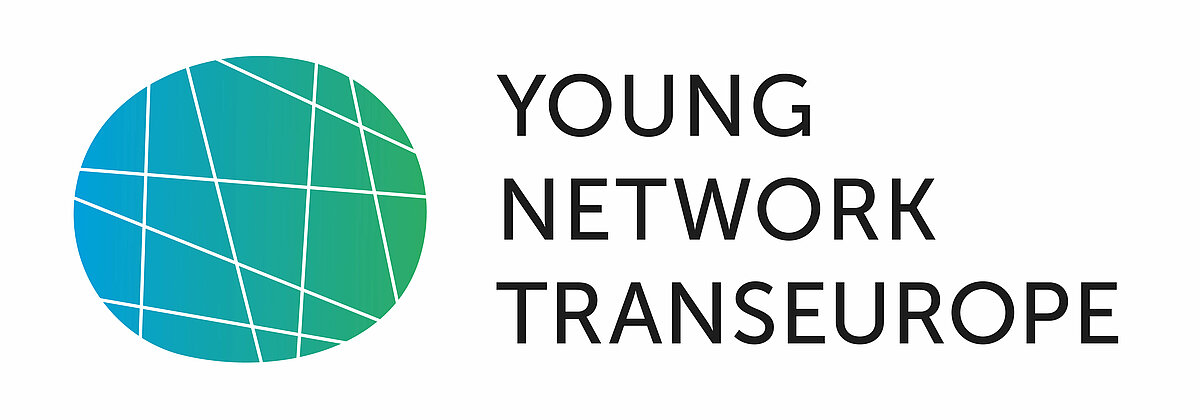


Oct 16, 2025 – Jan 29, 2026:
Reclaiming Transnationalism: A Seminar Series on Cross-Border Solidarities, Conflicts, and Cultural Imaginaries
In the wake of Russia’s criminal war of aggression against Ukraine, the Berlin-Brandenburg Academy of Sciences and Humanities (BBAW) has established the “Young Network TransEurope” (YNT), together with partners such as Die Junge Akademie.
The impetus for setting up the network stems from the realisation that expertise on the countries colloquially termed “Eastern Europe” has been neglected and marginalised in Germany and its western neighbours over a long time. This lack of knowledge has had dire consequences. BBAW and its partners have formulated the manifesto Reclaiming Europe to address this situation and to outline possible steps to overcome it.
In the spirit of the manifesto, YNT will contribute to such steps by generating deeper understanding of the multiple European perspectives through the cooperative work of outstanding multipliers from different academic fields and diverse European regions.
The founding members of YNT have been officially welcomed to the network during the conference “Reclaiming Europe” in Gdańsk/Poland in October 2024. Get an impression of the opening event of the conference here:
YNT membership lasts for five years (with subsequent status as alumnus). The current members will work on interdisciplinary projects with their colleagues, expand their networks, and use YNT as a platform enabling them to intervene into public debates, thus amplifying the impact of their research. New members will be admitted every year.
The prefix “Trans” signals – in contrast to the dichotomisation East/West – that YNT aims at transcending borders (geographical, cultural, scientific, disciplinary, etc.) and at enabling projects that promise to do so. In view of the continuing Russian war of aggression, the main focus of the network’s work will, for the foreseeable future, be on Ukraine and its neighbouring states, i. e. the above-mentioned countries in “Eastern Europe”.
The Russian invasion of Ukraine in February 2022 deeply shocked many people in Europe. The members of the Berlin-Brandenburg Academy of Sciences and Humanities were not only deeply shocked, but also felt particularly compelled to send a signal of European solidarity because of Germany’s criminal actions towards Ukraine during the Second World War, in which the Academy was also involved. The central regions, wrongly referred to as “Eastern Europe”, and their fate concern all people in Europe. That is why the Academy, in cooperation with many partner institutions, has founded the Young Network TransEurope. Its task is to forge new connections in Europe and disseminate relevant knowledge. The ceremonial appointment of the seventeen founding members of this network in the presence of so many people who were forced to flee their homes due to a brutal war – and who continue to hope that they will be able to return and rebuild their lives – was a moving moment.
The appointment took place during the opening event of the Reclaiming Europe conference in October 2024 in Gdańsk. Important speeches were also given by Nobel Prize winner Oleksandra Matviichuk and Carsten Schneider, then Federal Government Commissioner for Eastern Germany. And everyone enjoyed a concert by the Kyiv Symphony Orchestra. The musicians, conducted by Stephan Frucht, played Schubert’s Symphony in C major, The Great, and the short piece “Melody” by Ukrainian composer Myroslav Skoryk, written for the 1981 film High Pass, which portrays the resistance in Ukraine during the Second World War.
This evening, whose special atmosphere is documented in the photos in this magazine, was unforgettable.
The event took place at the historic site of the former Lenin Shipyard. Although Lech Wałęsa himself was unable to attend, his work and the legacy of Solidarność were clearly felt when there was talk of a united Europe that continues to work for freedom, democracy and prosperity for all its inhabitants. Being in Gdańsk and participating in this conference together with the Europejskie Centrum Solidarności (European Solidarity Centre) 35 years after the fall of the Iron Curtain was a very special experience for me, having grown up in the free part of Berlin before 1989, in the shadow of the Berlin Wall. We Germans all too easily forget that it was the courage and foresight of the Polish people that contributed significantly to the transformation of the whole of Europe in the 1980s. The peaceful revolution began in Gdańsk, not in Leipzig, and we owe part of our freedom to our Polish sisters and brothers.
After the 24th of February 2022, even those who had not recognised it before finally had to realise that many people in the countries we call “Western Europe” had a frightening ignorance about so-called “Eastern Europe”. But there is only one common history of Europe, and we all belong together. This realisation struck me particularly during a visit to Lviv in the summer of 2023, where people rightly insist that they do not live on the edge of Europe, but at its heart. What we need is a new openness, attention to new voices and greater visibility for different perspectives on Europe, so that this long-standing ignorance can finally be overcome.
The essays in this magazine reflect the topics discussed during the conference that followed the opening evening. Like pieces of a mosaic, they fit together to form a larger picture that shows what Reclaiming Europe can mean – from deeply personal reflections on displacement to analyses of political developments, from the challenges of artificial intelligence to the ecological consequences of ongoing war. I hope you find reading it as thought-provoking and inspiring as I did.
Christoph Markschies
President of the Berlin-Brandenburg Academy of Sciences and Humanities
Roland Römhildt
Personal Assistant to the President / Officer for International Relations
Presidential Office
Tel.: +49 (0)30 20370 583
roland.roemhildt@bbaw.de
Jägerstraße 22/23
10117 Berlin
Further Information